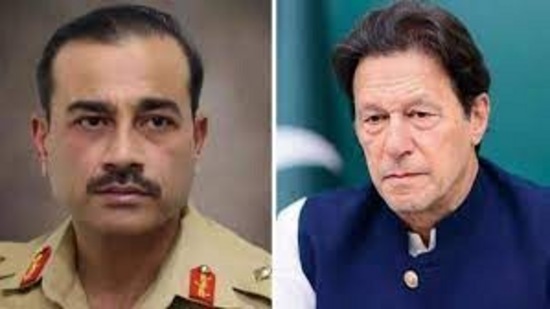New Pak Army chief priority will be internal turmoil than the borders
Both Gen Asim Munir and Gen Shamshad Mirza have dealt with the Indian Army first hand and know the capabilities and capacities of Modi’s India.
With General Asim Munir taking over as Pakistan Army Chief and Gen Shamshad Mirza as Chairman of Joint Chiefs of Staff Committee (JCSC), the Indian national security planners have decided not to pre-judge them on their past but on their future action on Pakistan’s borders and on terrorist groups targeting India.

Even though General Munir was the DG (ISI) when Pulwama attack took place on February 14, 2019, he knows the Indian military capacity and capability as it was he who conveyed Prime Minister Narendra Modi’s blunt message to then Prime Minister Imran Khan Niazi on military repercussions if IAF’s captured fighter pilot Wing Commander Abhinandan was harmed in Rawalpindi custody post February 26, 2019 Balakot strike. Gen Munir was told to convey PM Modi’s message by then RA&W Chief Anil Dhasmana even as India readied Prithvi ballistic missiles in Rajasthan sector to show that PM Modi's threat was real. Such was the threat that release of Abhinandan was announced by Niazi the same evening in Pakistan National Assembly. In a way, Gen Munir is well versed with India’s overt and covert capabilities.
Gen Shamshad Mirza is also clear of Indian war capability as he was in charge of X Corps, which has the entire LoC under its jurisdiction, and he has had conversations with Indian Chief of Defence Staff Gen Anil Chauhan when both were Director General Military Operations of their respective countries. Gen Mirza was instrumental in ensuring ceasefire along the LoC with India on instructions of the outgoing Pak Army Chief Gen Qamar Jawed Bajwa.
As India is quite capable of handling any Pakistan Army action on the LoC or western borders, the focus of Gen Munir will be more towards handling internal situations within Pakistan with ousted PM Imran Niazi desperate to force an early election in the Islamic Republic. Niazi’s past actions show that he is quite an unscrupulous politician who can conjure up a non-existent diplomatic cipher to blame US in cahoots with Pakistan Army for his ouster. The political turmoil within Pakistan will continue till the elections are held as Niazi is convinced that he will win the electoral battle by cursing Sharif-Zardari families as well as the Pakistan Army.
The second challenge that Gen Munir faces is border skirmishes with Taliban ruled Afghanistan who refuse to recognize the Durand Line that was used by the cunning British to divide the Pashtun community. Cross border firings have become the order of the day with the Taliban regime not interested in following the advice of Rawalpindi on national interest matters.
The third challenge that Gen Munir will face is to keep 40 odd terrorist groups under control in Pakistan with TTP, Balochistan Liberation Army and the Sindh groups growing in capacity to stand up to Islamabad. Even though Pakistan is being pushed by China to further expand the Belt Road Initiative, the Baloch and Sindh groups will act as major spoilers as they have started targeting the Chinese nationals out to exploit their regions natural resources.
The fourth challenge that Gen Munir will face is restoring the credibility of Pakistan Army, which has been attacked by their own once upon a time political protégé, Imran Niazi. The leaking of humongous financial assets of outgoing chief Gen Bajwa was clearly part of PTI plan to demolish the holy image of Pakistan Army and its Corps Commanders. Gen Munir would be well versed with machinations of Imran Niazi as it was the latter who threw him out of the ISI headquarters after a brief tenure and appointed his supplicant Gen Faiz Hameed in turn.
Lastly, Gen Munir has also the onerous task of mending ties, destroyed by Imran Niazi through his cipher caper, with the Pentagon and the Biden Administration. Even though US forces left Kabul in a hurry on August 15, 2001, Pentagon still maintains and exercises its beyond the horizon attack capabilities within and outside Pakistan.




